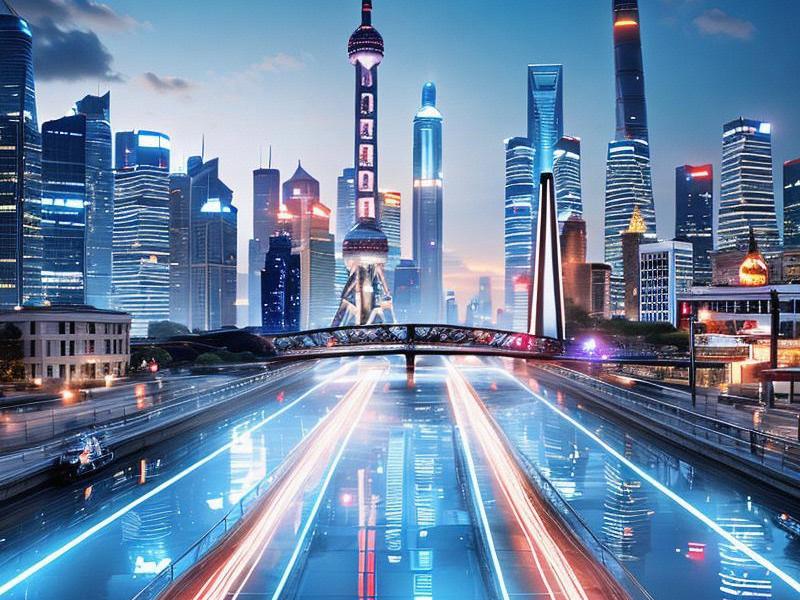Shanghai's Rising Tech Scene: A New Era of Innovation and Growth
⏱ 2025-04-26 10:27 🔖 上海龙凤419
📢0℃

In recent years, Shanghai has solidified its position as a leading city in China's tech ecosystem, attracting both domestic and international attention. The city's strategic location, robust infrastructure, and supportive government policies have created an ideal environment for technological innovation and business development.
One of the most significant drivers of Shanghai's tech boom is the rapid advancement of artificial intelligence (AI). Shanghai has established itself as a key player in the global AI race, with numerous research institutions, universities, and enterprises investing heavily in AI research and development. The city's AI industry is characterized by a strong focus on applied technologies, such as natural language processing, computer vision, and autonomous systems.
The Shanghai AI Innovation and Development Summit, held annually, serves as a platform for industry leaders, researchers, and policymakers to discuss the latest trends and advancements in AI. This event not only fosters collaboration among stakeholders but also highlights Shanghai's commitment to becoming a global leader in AI innovation.
In addition to AI, Shanghai has witnessed a surge in the number of startups, particularly in the fields of e-commerce, fintech, and healthcare technology. The city's vibrant startup ecosystem is supported by a range of initiatives, including incubators, accelerators, and venture capital funds. These resources provide startups with the necessary tools and expertise to scale their businesses and compete in the global market.
阿拉爱上海 One notable example is the Zhangjiang Hi-Tech Park, a state-level development zone dedicated to fostering high-tech industries. The park houses numerous startups and established enterprises, offering them access to cutting-edge facilities, networking opportunities, and government support. This concentration of talent and resources has made Zhangjiang Hi-Tech Park a magnet for innovation and entrepreneurship in Shanghai.
The Chinese government's Digital Economy Promotion Law, which came into effect in 2021, has further bolstered Shanghai's position as a tech hub. The law aims to accelerate the development of the digital economy by providing a legal framework for data protection, intellectual property rights, and fair competition. This legislation has created a more favorable business environment for tech companies, encouraging them to invest in Shanghai and contribute to the city's economic growth.
Shanghai's tech scene is also benefiting from its strategic location at the crossroads of China's eastern coast and the Yangtze River Delta region. This connectivity enables the city to facilitate the flow of goods, services, and information, making it an ideal hub for international trade and investment. The city's well-developed transportation network, including the Shanghai Pudong International Airport and the Yangshan Deep Water Port, further enhances its appeal as a global tech hub.
Moreover, Shanghai's talent pool is a key factor in its success. The city is home to numerous prestigious universities and research institutions, such as Fudan University, Tongji University, and the Shanghai Jiao Tong University. These institutions produce a steady stream of highly skilled graduates, many of whom choose to remain in Shanghai to pursue careers in the tech industry.
上海私人外卖工作室联系方式
The city's government has also taken steps to attract top talent from around the world. Initiatives such as the Shanghai Talent Visa Program and the Global Talent Attraction Strategy provide foreign professionals with visa and work permit benefits, making it easier for them to settle in Shanghai and contribute to the city's tech ecosystem.
In addition to attracting talent, Shanghai has also prioritized the development of its digital infrastructure. The city has invested heavily in 5G networks, high-speed broadband, and data centers, ensuring that businesses have access to the latest technologies and connectivity options. This focus on digital infrastructure has enabled Shanghai to support the growth of its tech industry and maintain its competitive edge in the global market.
The city's tech scene is not without its challenges, however. As with any rapidly growing industry, Shanghai faces issues related to talent retention, intellectual property protection, and regulatory compliance. To address these challenges, the city's government has implemented a range of measures, including talent retention programs, stricter IP laws, and streamlined regulatory processes.
上海品茶网 Despite these challenges, Shanghai's tech industry continues to thrive, driven by the city's innovative spirit and commitment to growth. The city's tech companies are increasingly collaborating with international partners, participating in global technology forums, and contributing to the development of new technologies and solutions.
One example of this collaboration is the Shanghai International Internet of Things Expo, which brings together industry leaders, researchers, and policymakers from around the world to discuss the latest trends and advancements in IoT technology. This event highlights Shanghai's role as a global hub for IoT innovation and underscores the city's commitment to fostering international cooperation in the tech sector.
In conclusion, Shanghai's rising tech scene is a testament to the city's ability to adapt and innovate in an increasingly digital world. With its strong focus on AI, vibrant startup ecosystem, strategic location, and supportive government policies, Shanghai is well-positioned to become a global leader in the tech industry. As the city continues to grow and evolve, it will undoubtedly play a pivotal role in shaping the future of China's digital economy and beyond.
【潮涌长三角:上海的半径与圆周】从外滩灯光到江南水乡的共生密码Shanghai's Vibrant Cultural Scene: A Blend of Tradition and Modernity【霓虹与素笺】上海女性的百年气质图谱Shanghai 5250: Quantum Leisure Singularity and the Galactic Nightlife Matrix【城市观察】文化魔方的三原色:上海剧场、书店与美术馆的共生实验Shanghai's Nightlife Renaissance: Where Imperial Heritage Meets Quantum Innovation【霓虹密码】上海娱乐会所的时空折叠术Shanghai's Smart Nightlife Ecosystems: Blending Imperial Heritage with AI-Driven Innovation【量子上海】在11个维度中同时绽放的魔都镜像(1850-2025)Shanghai's Finest Women: A Story of Resilience and Excellence

